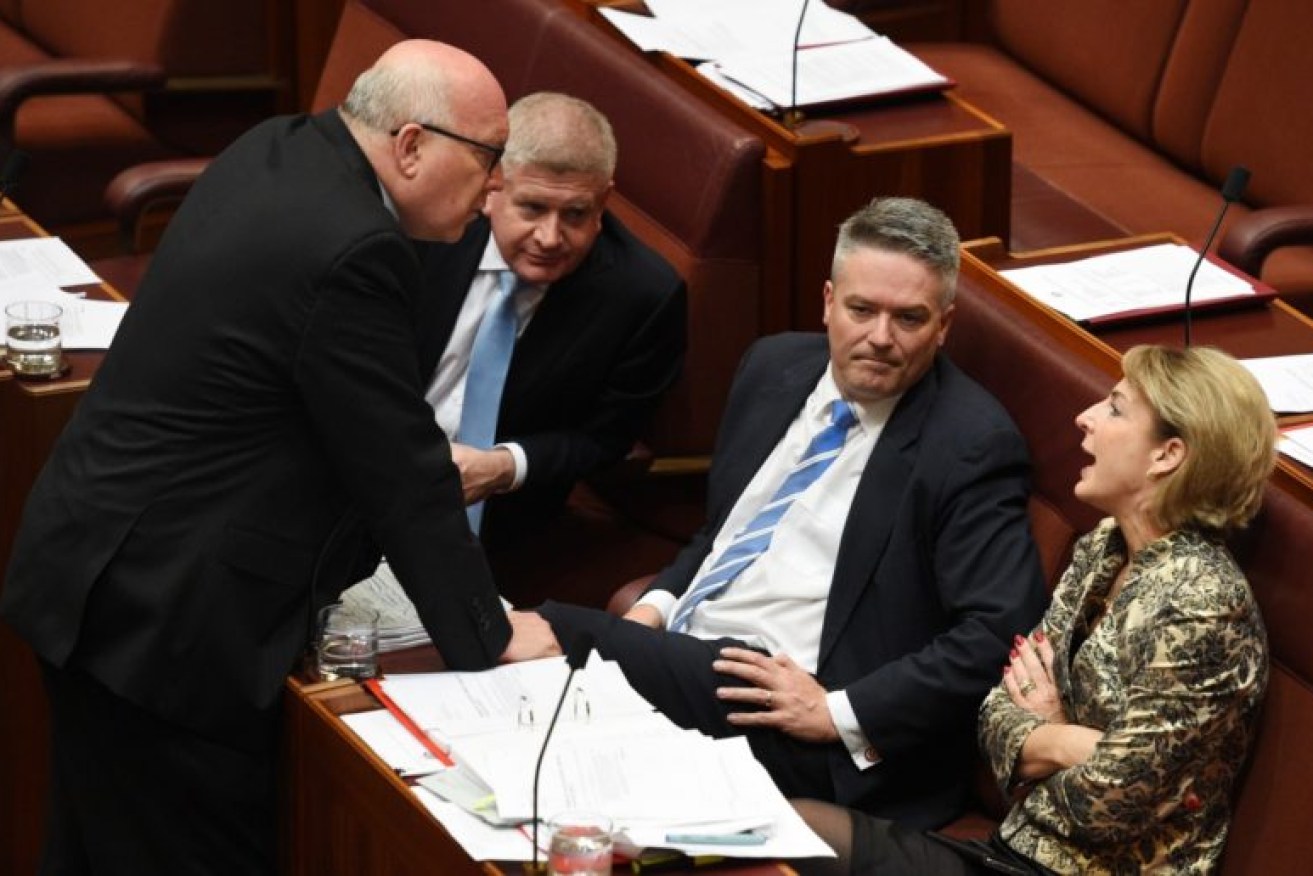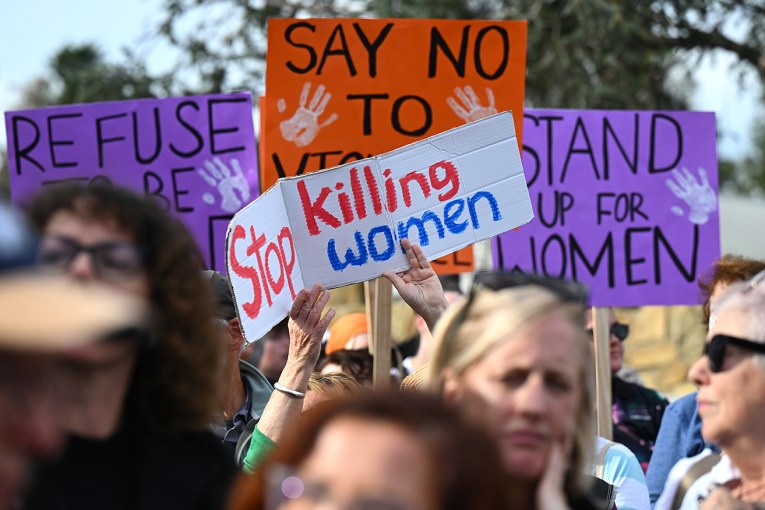ABC and SBS the pawns in government’s media power play


Senator Fifield is close to getting the contentious dismantling of Paul Keating’s media-ownership controls through the 2017 Parliament. Photo: AAP
Communications Minister Mitch Fifield has leveraged One Nation’s demand for reprisals against public broadcasters ABC and SBS in a desperate bid to re-engineer the Australian commercial media industry.
On Wednesday, Senate numbers were tight: ALP/Greens at 31 against Senator Fifield’s reform bill with Coalition (28) plus supportive votes expected from senators Derryn Hinch, David Leyonhjelm, Lucy Gichuhi, Cory Bernardi and Jacqui Lambie making 33.
In the balance were Pauline Hanson’s four One Nation senators and the Nick Xenophon Team’s three. With two Greens Senate seats currently vacant, the minister is now very close to getting the contentious dismantling of Paul Keating’s 1980s media-ownership controls through the 2017 Parliament.
This week Senator Fifield announced his in-principle ABC/SBS reprisal deal with Senator Hanson’s One Nation.

Pauline Hanson’s One Nation also pushed for a “fair and balanced” ABC. Photo: AAP
It includes a potentially destructive “competitive neutrality” inquiry which could eventually force the withdrawal of the ABC and SBS from free online website news and video streaming services which are said to seriously disadvantage commercial content providers.
Currently, the ABC spends taxpayer money to buy search-engine (Google) marketing enhancements which has helped it drive up traffic, making ABC online the second- or third-most visited Australian news website.
Other reprisals include One Nation’s proposal to add the words “fair and balanced” to redefine ABC Charter journalism “to ensure that the gathering and presentation of news and information is fair, balanced, accurate and impartial according to the recognised standards of objective journalism”.
And there is an agreed move to make the ABC and SBS publish the names and details of staff earning annual salaries of $200,000 or more.
In a lobbying frenzy this week, the ABC was pleased that Senator Fifield had not committed to further defunding the broadcaster after recent budgets in which an estimated 600 staff have been made to walk the redundancy plank with the heavy loss of regional, international, radio and TV programming.
Australian media sweating on the reforms
With the big Australian commercial media companies now sweating on reform to trigger a wave of mergers and acquisitions, the crossbench power plays of Senator Xenophon now appear decisive.
Senator Xenophon has rejected the ABC/SBS reprisals, but is considering support for abolishing the two-out-of-three and reach constraints. That would be in return for an Australian Competition and Consumer Commission inquiry into Google and Facebook’s dominance “hoovering up” an estimated $4 billion in advertising revenue from local commercial companies.
Also in play is NXT’s demand for tax concessions for investment in public-interest journalism.
If Senator Fifield is enticed by this, such concessions would be available to smaller media players who hire journalists and build newsrooms throughout metropolitan and regional Australia. Cost? An estimated $60 million a year – considered affordable but instrumental in sustaining public-interest journalism.
Senator Fifield said his reform bill had the unanimous support of the entire media industry including WIN, Prime, Southern Cross Austereo, Nine, Seven, Ten, Fairfax, News Corp, Foxtel, Free TV, ASTRA and Commercial Radio Australia.
The industry, which has already retrenched thousands of employees, has been telling MPs and senators that it faces further financial and audience decline in the face of the offshore digital disrupters, unless it can regroup through mergers across platforms in capital city and regional markets.
Through online and mobiles, video streaming with syndicated global entertainment and sporting content, the digital revolutionaries will eventually have wifi access to all the eyeballs of Australia.
Exactly what trade-offs and reprisals will finally emerge in the Fifield media reform bill will depend on the crossbench horse-trading and the motivations, altruistic or malicious, of the Senate traders.
If and when it is passed, the bill will trigger the greatest change to local media ownership in 40 years.
Quentin Dempster is a Walkley Award-winning journalist, author and broadcaster with decades of experience. He is a veteran of the ABC newsroom and has worked with a number of print titles including the Sydney Morning Herald. He was awarded an Order of Australia in 1992 for services to journalism.








